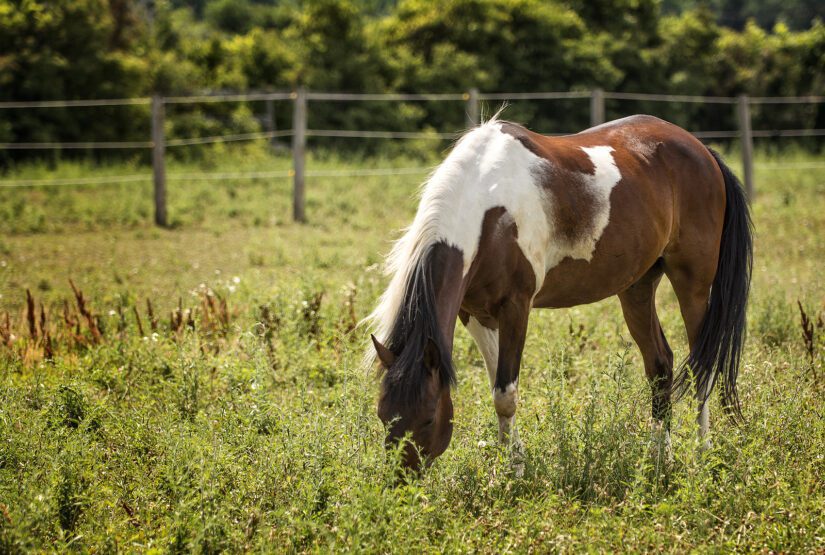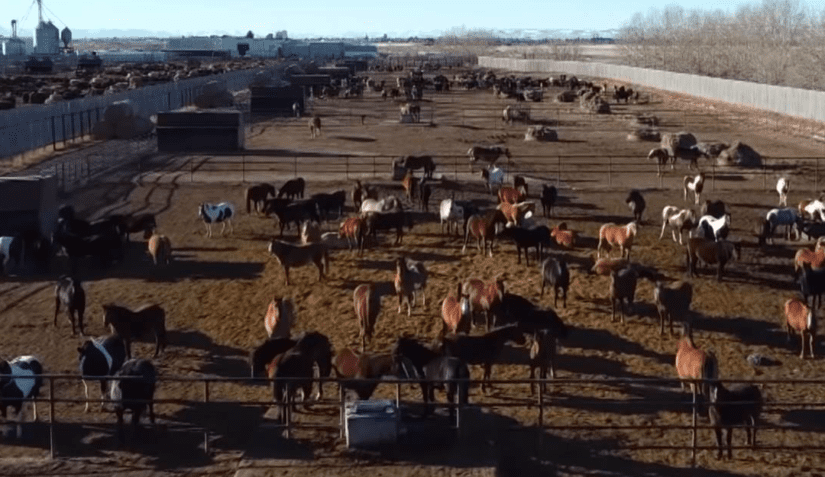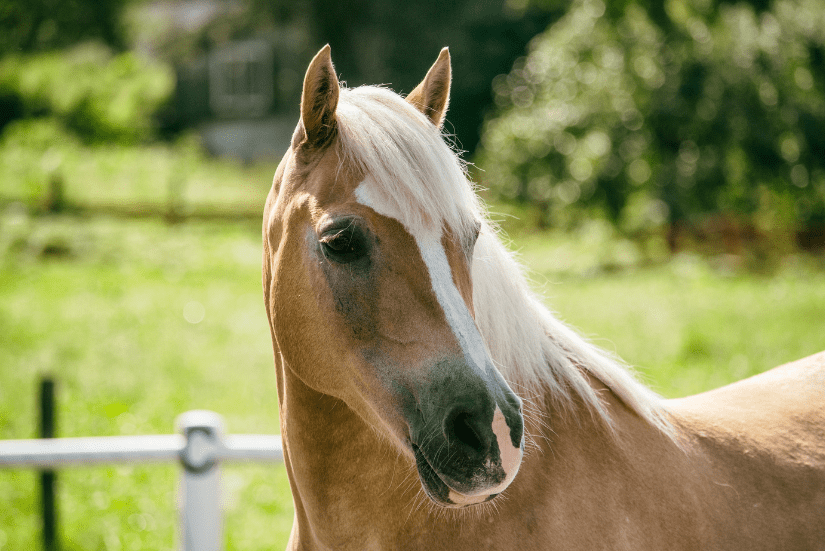Statistics
Horses and other equines (e.g. donkeys, mules) are bred and kept in Canada for many reasons, including companionship; personal recreation; commercial recreation such as racing, rodeo, and equestrian sports; working purposes such as ranching and logging; and meat production.
The number of horses on farms in Canada is estimated at over 183,000, across over 20,000 farms (this does not include horses at boarding or riding facilities).
Raising horses for the primary purpose of meat production is very small in Canada, estimated at only 1% of Canadian horses. However, thousands of horses are still being slaughtered for meat each year. In 2015, 67,995 horses were slaughtered in Canada.

Life of a horse slaughtered for meat
The horses that are slaughtered for meat in Canada come from many different sources, and may live very different lives.
Horses may be sold into meat production after they have retired from their original activity (racing, sport competition, working, etc.). Or, horses may become too sick to be used for other purposes, and are sold into meat production as an end-of-life option. But, not all of the horses sent to slaughter for human consumption are unwanted or sent knowingly. In some cases, guardians that are no longer able to afford care for their horse will bring them to livestock auctions hoping to find a new home for them. Sadly, these horses may be bought by “kill buyers” who send them to slaughter. Horses sold into meat production may be transported directly to the slaughter facility or spend time in a feedlot to fatten up prior to slaughter.
There are also farms in Canada that specifically breed and raise horses for the primary purpose of meat production. The horses spend their entire lives in barren feedlots before being sent for slaughter. These feedlots offer minimal protection from weather extremes, limited veterinary care, crowded conditions and minimal enrichment.

But, the horses on these farms are not slaughtered in Canada. Instead, the horses are transported overseas to be slaughtered. They are transported by plane in small wooden crates on journeys that can take more than 20 hours, during which the horses do not have access to feed, water or rest. Canada is one of the only countries in the world that transports live horses overseas for slaughter. Since 2013, over 40,000 horses have been transported out of Canada.
What are the main concerns for horse welfare?
Despite the many reasons horses are kept in Canada, these welfare concerns apply to most horses.
- Protection from weather extremes
As horses should be spending majority of their time outdoors foraging, they need to have access to a windbreak, shade or shelter to protect them from weather extremes.
- Painful procedures
Castration, tail alterations, and permanent identification (branding) are all procedures that can cause pain and distress to horses. The Equine Code of Practice outlines pain control requirements for husbandry procedures, and which procedures are prohibited. Pain control must be provided for castration, and tail alterations are prohibited. However, branding is still permitted and there is no pain control requirement.
- Adequate turnout time for foraging, exercise and social opportunities
Horses will become stressed and can develop stereotypic behaviours (cribbing, weaving) if horses are confined to stalls for too long without opportunities to forage, exercise and socialize.
- Hoof care
Proper hoof care needs to be done on a regular basis in order to protect the hoof, ensure normal gait, and to prevent infections of the hoof.
- Handling and training
Horse welfare can be significantly reduced if improper training and handling methods are used. This can lead to many negative behavioural or physical problems. It is important for horse owners to understand horse behaviour, consult a professional when needed, and to always focus on forming a strong positive bond.
Support a better life for horses
The BC SPCA is always working to build a better future for farm animals in B.C. and across Canada, and this includes horses. Equines can live for 30 years or longer. Ownership is a long-term commitment of time and finances. Guardians are responsible for providing proper care for their horses, donkeys and mules as outlined in the Canadian Code of Practice for the Care and Handling of Equines.
Have a warm stable available? If you have experience with horses and have room in your life to care for one, we often have horses available for foster or adoption.
- Learn more about our horse volunteer opportunities
- Visit our adoption site to see horses who need a good home

Additional resources:
- Read our position statement on equine welfare
- Check out these videos for an explanation of the Equine Code of Practice
- Fun facts about horses
- Learn how you can take action for farm animals
Subscribe to FarmSense
Are you passionate about farm animal welfare and want to help improve the lives of horses? use this form to sign up for our FarmSense e-newsletter and stay up-to-date on our initiatives!
